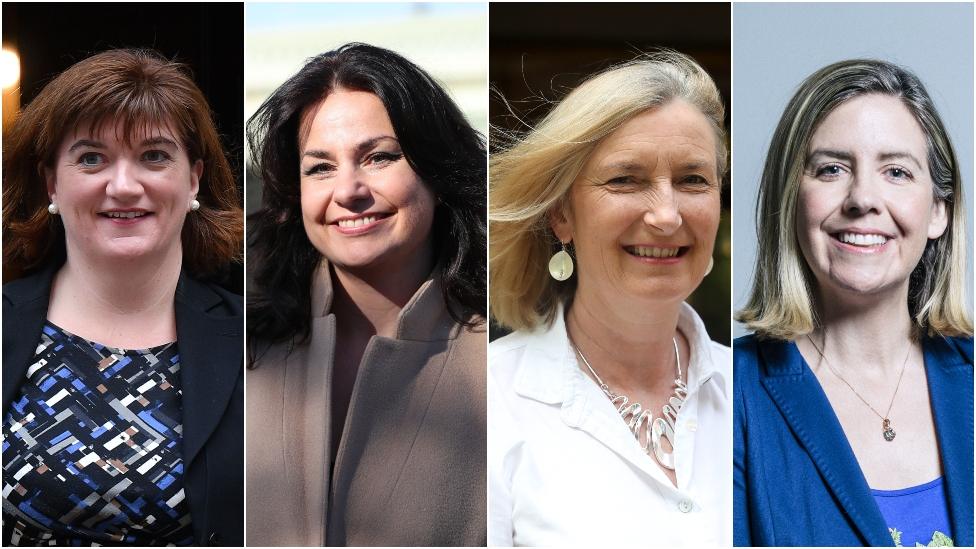General election 2019: Conservatives 'see highest rise in Twitter abuse'
- Published
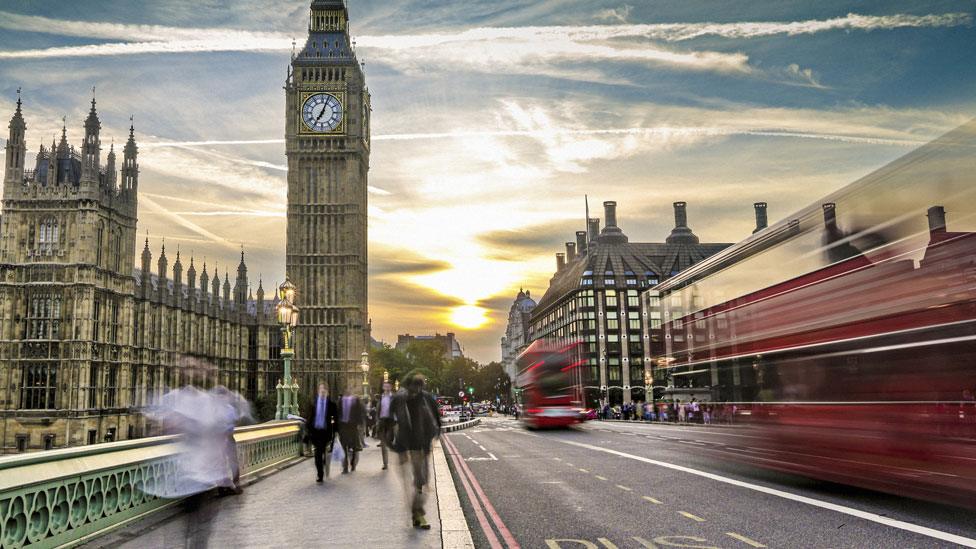
The abuse of candidates on Twitter has escalated during the election campaign, research suggests, with Conservatives seeing the biggest rise.
Abuse spiked after TV debates, a study by the University of Sheffield found - with abuse of Tories rising and Labour and Lib Dem levels remaining stable.
Labour's Jeremy Corbyn received most, followed by Tory leader Boris Johnson.
Others have reported being threatened with sledgehammers and targeted by abusive graffiti and vandalism.
Conservative candidate Andrea Jenkyns told the BBC some of the abuse she received had been "sexually violent", while the SNP's Lisa Cameron said social media trolls had threatened to behead her.
Researchers looked at the abusive replies candidates received on Twitter during the first four weeks of the general election campaign.
They cross-referenced a database of slurs and offensive words with the contents of responses to tweets sent by candidates standing on 12 December.
While the Labour and Conservative leaders received the most abuse, the study found that Health Secretary Matt Hancock, cabinet minister Michael Gove and Labour candidate David Lammy received the next highest levels.
Conservative Jacob Rees-Mogg, Lib Dem leader Jo Swinson, and Labour's Diane Abbott also received substantial levels of abuse.
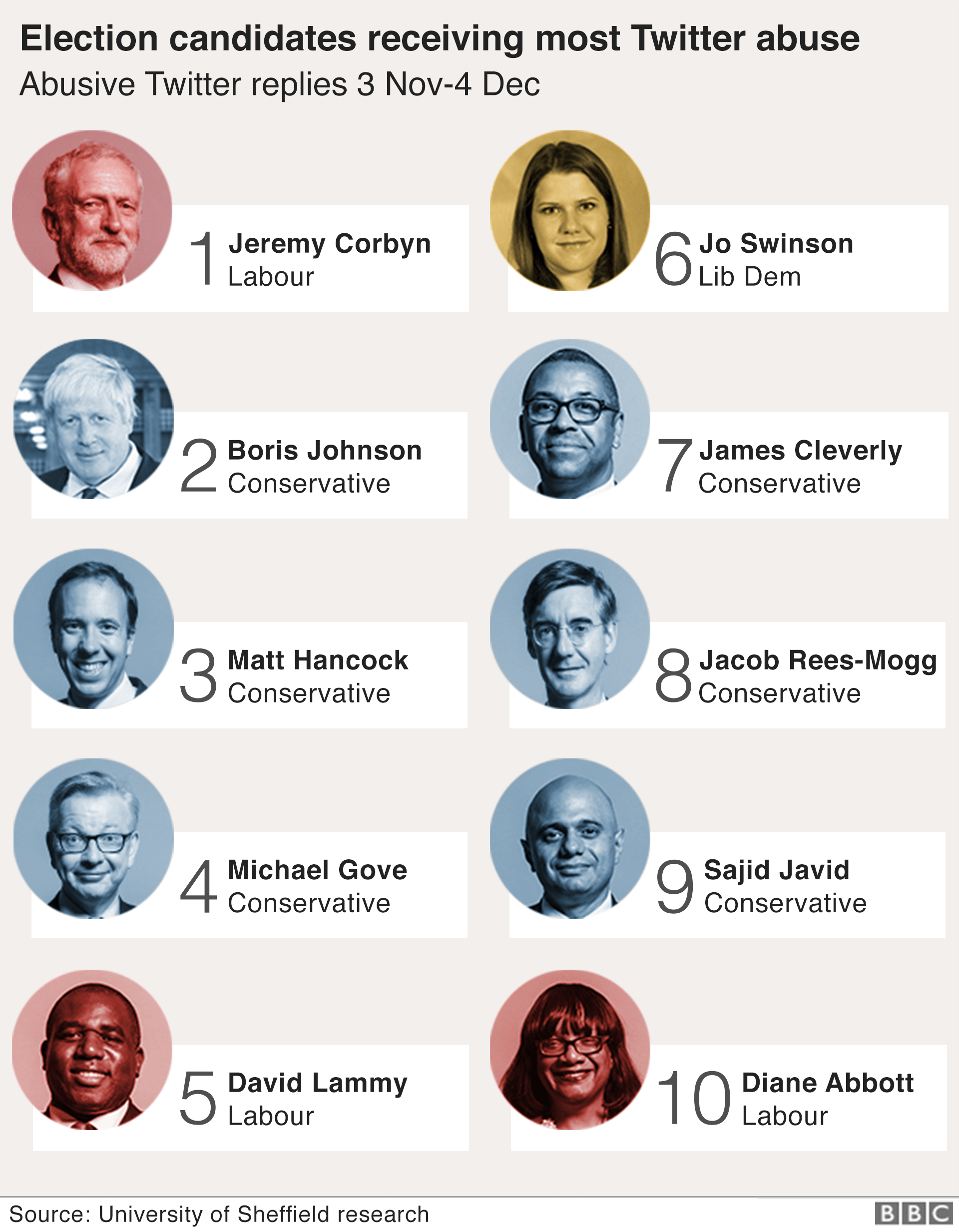

Of the top 20 recipients of abuse between 3 November and 4 December, the study found that 11 were Conservative, seven were Labour and two were Lib Dem.
And while candidates of all parties received abusive tweet replies, Conservative candidates saw a rising level of abuse towards them as the campaign got under way - something that was not echoed in responses to either Labour or Lib Dem candidates, researchers said.
Professor Kalina Bontcheva, who leads the research team behind the study, said the overall rise in abuse suggested "extreme voter polarisation", with people using a variety of insults to attack the political orientation or opinion of candidates.
"This is combined with an even more disturbing rise in vitriolic personal abuse and threats - often targeting the candidates due to their race, gender, country of birth, or religion," she said.

CONFUSED? Our simple election guide, external
MANIFESTO GUIDE: Who should I vote for?, external
POSTCODE SEARCH: Find your local candidates, external

Michael Gove saw a spike in abuse levelled at him around the time of Channel 4's election debate on climate change, the study found.
He had offered to take the place of Mr Johnson in the debate, but the broadcaster refused, saying the invitation was for leaders only. Instead, the programme "empty chaired" Mr Johnson.
More generally, Brexit, immigration and policing all drew fire on Twitter for the Conservatives, while Labour was attacked for tweets on immigration, Brexit, democracy and business and enterprise, according to the study.
The Lib Dems drew disproportionate amounts of abuse for posts on Brexit, democracy, community and society, it said.
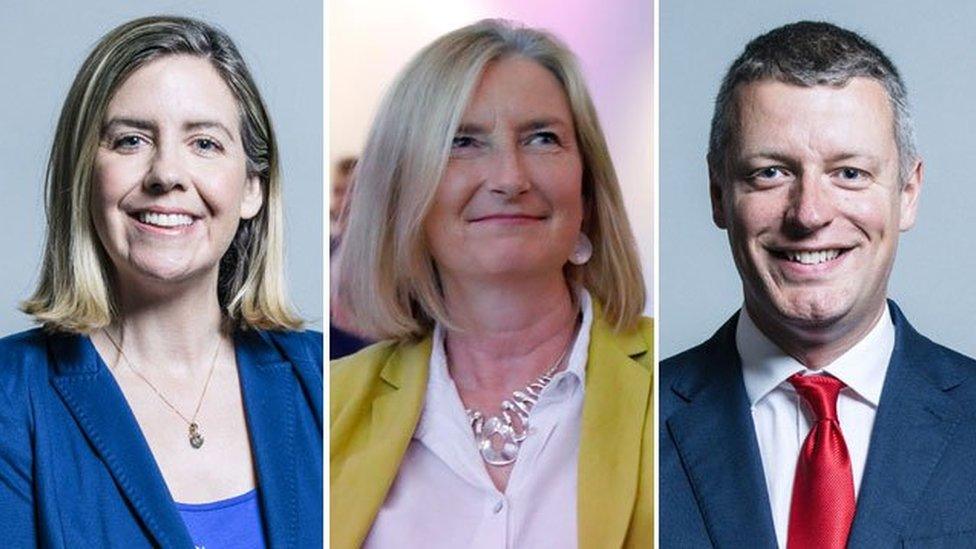
Candidates Andrea Jenkyns, Sarah Wollaston and Luke Pollard have all been victims of abuse
Andrea Jenkyns, Conservative candidate for Morley and Outwood, has noticed the type and level of online abuse directed at her get worse. She said abuse had been directed at her from people with fake profiles.
One of her campaign team was recently chased down the street by a man with a sledgehammer. "It can be pretty horrific, some of it, actually," she told the BBC.
"I'm a blunt northern lass who believes in fighting, but I think the sad thing is my threshold - my tolerance levels - has widened. I probably accept a lot more now than, ordinarily, I would have done."
The SNP's Lisa Cameron added: "I've already had people online, particularly over the Halloween period, calling me a witch and a monster and, you know, making fun and mocking me, mocking my parents, mocking me in general."
"Then I received death threats online from individuals saying they were coming to behead me, sending pictures of beheaded corpses," she added.
Safety concerns
For Sarah Wollaston, Liberal Democrat candidate for Totnes, abuse can feel relentless, with "torrents" of it often being whipped up online.
"It's a great shame. It's become normalised. For me I just don't notice it. I set my filters higher. Unpleasant messages I mute them. A lot of people I want to interact with but if you do, you are just feeding it."
She added: "It is coming at you in every form - online, in the mail, even things like dirty underwear being delivered to my office - unpleasant stuff that my team then have to deal with."
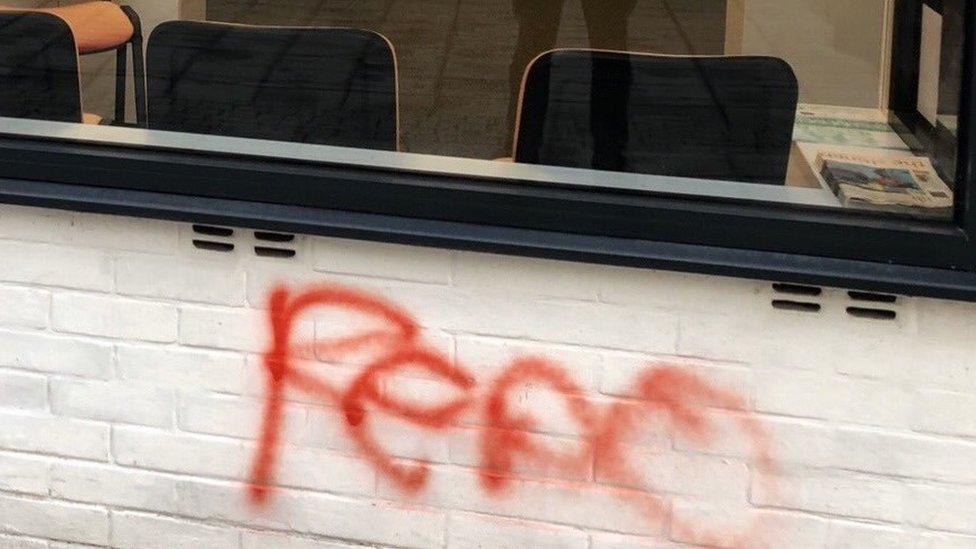
The word "pedo" was sprayed across the front of a Labour candidate's office in Plymouth
Luke Pollard, Labour candidate for Plymouth Sutton and Devonport, has also received abuse on social media and has had his constituency office daubed with homophobic graffiti.
Although there was no place for such abuse, he said, he called on politicians on all sides to take responsibility for the tone of the current debate.
"In the heated, divisive, contested atmosphere of a general election, you know people respond to the hate they see and the division they see from politicians - and that contributes to this very toxic atmosphere," he said.
Police told the BBC they had received almost 200 reports relating to election candidate security between 15 November and 4 December. However, about half of the reports did not constitute a crime.
Martin Hewitt, chairman of the National Police Chiefs' Council, advised election candidates and their volunteers to familiarise themselves with police safety guidance, external and to contact police with any concerns.
"Police will investigate all reports of abuse and will seek to prosecute those who act outside the law," he added.

Misleading social media ads
It comes as separate research revealed the extent of misleading advertising on social media by political parties and campaign groups at this election.
Non-profit organisation First Draft looked at every paid-for Facebook ad from the three main UK-wide parties run over the first four days of December.
For the Conservatives, the group said 88% (5,952) of the party's most widely promoted ads either featured claims that had been flagged by independent fact-checking organisations, including BBC Reality Check, as not correct or not entirely correct.
For the Lib Dems, it said hundreds of potentially misleading ads had featured identical unlabelled graphs, with no indication of the source data, to claim it was the only party that could beat either Labour, the Conservatives, or the SNP "in seats like yours"
For Labour, it said it could not find any misleading claims in ads run over the period. However, it noted that the party's supporters were more likely to share unpaid-for electioneering posts than those of its rivals.

Follow election night on the BBC
Watch the election night special with Huw Edwards from 21:55 GMT on BBC One, the BBC News Channel, iPlayer
As polls close at 22:00, the BBC will publish an exit poll across all its platforms, including @bbcbreaking, external and @bbcpolitics, external
The BBC News website and app will bring you live coverage and the latest analysis throughout the night
We will feature results for every constituency as they come in with a postcode search, map and scoreboards
Follow @bbcelection, external for every constituency result
From 21:45 GMT, Jim Naughtie and Emma Barnett will host live election night coverage on BBC Radio 4, with BBC Radio 5 live joining for a simulcast from midnight
- Published6 August 2019
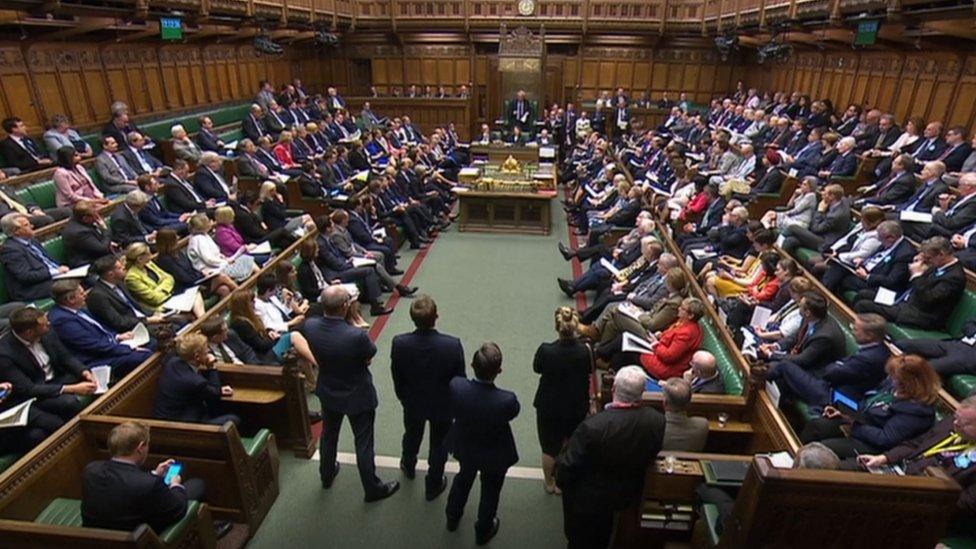
- Published31 October 2019
